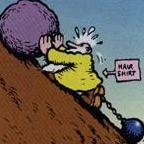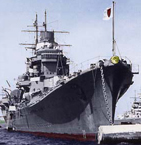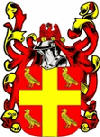akdreemer
Posts: 1028
Joined: 10/3/2004
From: Anchorage, Alaska
Status: offline

|
quote:
ORIGINAL: JD009
Been away for a while.
Not much on this thread.
So Terminus, all Japanese Admirals will run from a fight at every opportunity?  Sure make for a short war, just run a couple of DD's out of Pearl Harbor on Dec 7 and the entire Japanese fleet will flee to Tokyo Bay and scuttle themselves? Sure make for a short war, just run a couple of DD's out of Pearl Harbor on Dec 7 and the entire Japanese fleet will flee to Tokyo Bay and scuttle themselves?
Using historical examples of actions ignores the tremendous variety of influences on those point-in-time decisions. Can we really know what was on someone's mind when they made a decision? All of the factors they considered, all of the information on the situation as they thought it was happening? Not as hindsight tells us it was happening. Kurita had been awake and under air attack for some time as I recall. What if he had not been? Nagumo was looking for carriers at Pearl Harbor, not the oil tank farm. Hindsight tells us that if they had completely ignored Battleship Row and bombed the oil tank farm they would have been far better off, no US Navy ships west of Hawaii for the first six months of the war. But they didn't know that at the time, they were lookin fer flattops. Their strategy was based on force-vs-force, not on messing with the enemies logistics.
This whole business is one of the problems with leaders. A massive exercise in 20/20 hindsight is in progress. Did every Leader really walk around with their personal performance numbers tattooed on their foreheads? Did the High Command really have the option of making some Aggressive Genius Ensign commander of Combined Fleet? Or were the militaries really pretty much stuck with the main leaders that chance and the pre-war promotion process handed them?
It all smacks of the bad old days of rules lawyers, when people tried to leverage superior knowledge of the minutia of the wording of rules into victory. How many hours will people spend pouring over the leader selection process? Why bother with strategy when you can find the perfect combination of leaders who will guarantee victory, regardless of the forces on each side.
Belphegor; Leaders are not units in this game, they are a randomizing factor. In this case one that can be manipulated to try to gain an advantage. I might say an unfair advantage, but its not really that. Its simply one way that players can expend effort to try to gain an advantage. He (or she) who spends the most hours looking at and assigning leaders wins.
My real concern is the answer to the following either/or pair. Either leader ratings have so little effect on the outcome of battles that its silly to even bother with them? Or leader ratings are so significant as to make them the determining factor in victory? Has this game really been playtested enough to answer which is correct. If the first statement is right then why bother with leaders, you are just spending time for nothing. If the second statement is right then why bother playing the game, the ALLIES WIN. They did in real life so the leader ratings should always yield the same result. I would discount the idea that a perfect balance has been struck as pretty unlikely, especially since even the programmers don't seem to know how it all works. 
JDOO9
 I like.. Now how can we get these "undocumented" aspects (leader effects, etc.) of the game compiled in one source? I like.. Now how can we get these "undocumented" aspects (leader effects, etc.) of the game compiled in one source?
_____________________________
|
 Printable Version
Printable Version




















 ) to be the influencing factor, not theirs.
) to be the influencing factor, not theirs. 
 Sure make for a short war, just run a couple of DD's out of Pearl Harbor on Dec 7 and the entire Japanese fleet will flee to Tokyo Bay and scuttle themselves?
Sure make for a short war, just run a couple of DD's out of Pearl Harbor on Dec 7 and the entire Japanese fleet will flee to Tokyo Bay and scuttle themselves? 
 I like.. Now how can we get these "undocumented" aspects (leader effects, etc.) of the game compiled in one source?
I like.. Now how can we get these "undocumented" aspects (leader effects, etc.) of the game compiled in one source?




 New Messages
New Messages No New Messages
No New Messages Hot Topic w/ New Messages
Hot Topic w/ New Messages Hot Topic w/o New Messages
Hot Topic w/o New Messages Locked w/ New Messages
Locked w/ New Messages Locked w/o New Messages
Locked w/o New Messages Post New Thread
Post New Thread